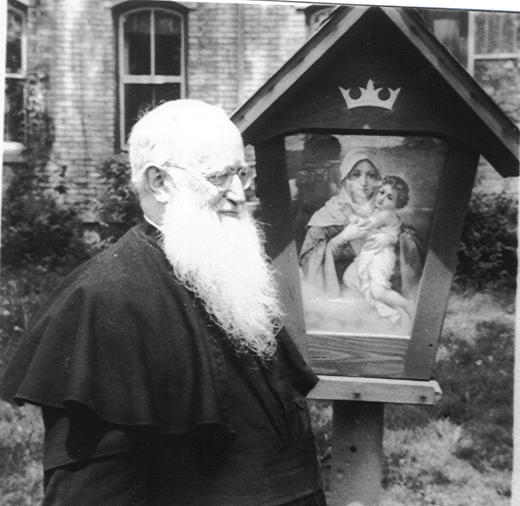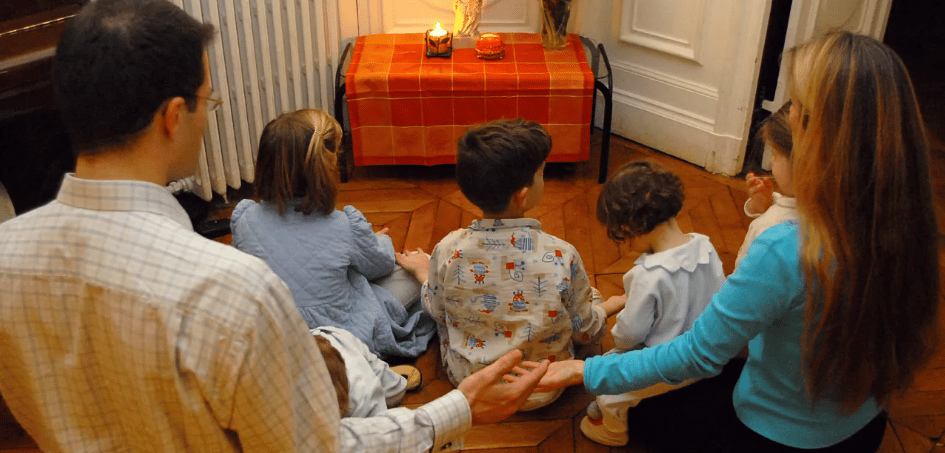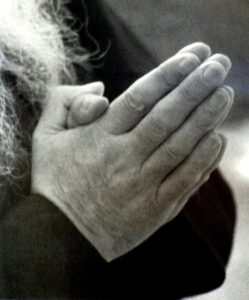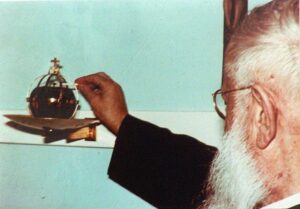We celebrate the birthday of Father Joseph Kentenich, our Father and Founder. What does his life and his birth mean to us, and what does it mean precisely in current times?
This question can have various interpretations and answers according to personal experiences, but we know: Father Kentenich’s life was one of constant trust, abandoning himself to the Blessed Mother’s doing, totally in faith!
Father Kentenich’s words
His words at the Congress for the Apostolic League of Women in 1945 (at the end of World War II) are a very precise guideline. He speaks accurately for today and, as a prophet, points us in the right direction for present-day situations. Perhaps God wants to speak to us now, through our Father and Founder:
“I believe I must not conclude without addressing the tribulations that burn in our souls: vital needs, economic needs, and needs in the area of health. We may look alive on the outside, but the basic needs are perceptible in us. Those who know a little about people’s economic situation know that we are probably on the way to a great famine and that we can expect epidemics.”

“Faced with this scenario, we naturally tend to panic and shudder. Allow me to recall the words of Sacred Scripture that resonate so much in our souls: ‘Seek first the kingdom of God and his righteousness, and all else will be given to you as well’ (Mt 6:33). We seek the Kingdom of God, the Kingdom of Schoenstatt along the path which has always been laid out for us. We all want to strive to be authentic Schoenstatt daughters. Everything else will be given to us as well, even enough to eat and drink”.
Do you know how we can manage the economic crisis? Total surrender to God is and continues to be one of the most important economic means. This surrender protects and preserves us from every need, or rather, helps us to emerge victorious from every crisis. Our Lady is not only the Mother of Grace, but also the Mother of Bread, the Mother of Home.”

“Being a family, we must overcome crises and economic worries together and, as far as possible, break bread with more awareness. May Mary be our common Mother of Bread, our common Mother of the Home. How many of us today no longer have a permanent home! Who should give us a new home, a permanent home? The Blessed Mother! How often have we used this phrase in prison, in the concentration camp, in the bunker [1] and elsewhere: ‘The Mother will provide’.”
“As Mother of Grace, she will see to it that we become new personalities, a new community. As Mother of Bread, she will take care of my physical needs and my health. As Mother of the Home, she will take care of all other matters. So, I look forward with great peace of mind to the worries and difficulties. Even if we have to await death dozens of times to prove the efficacy of the expression Mhc, Mater habebit curam, the Mother will take perfect care. How are we to be convinced now, when we mention her, that we can overcome the hunger crisis, the life crisis, the health crisis, the refugee crisis? Yes, it has been truly proven when we say Mhc. It has always been so, it remains so today, and it will remain so until the end of our life: Mater habebit curam!”
Miracles of trust


Let us not focus our attention, our worries and our conversations on matters that distract us from what is essential. Yes, we have to take sensible measures with regard to health care, financial matters, etc., but the center of our activities must be how to make Mary known, loved and praised. She herself will take care of the rest. If we take care of her, she takes care of us. Nothing without us, nothing without you.
1 Bunker: A fortified structure or entrenchment, partly or wholly built underground, made to resist the shells of war. Originally built as a wartime shelter. In Father Kentenich’s quote, the bunker is referred to as a prison, that is, the place where he was imprisoned: “On September 20, 1941, after an interrogation, Father Kentenich was arrested by the Gestapo in Koblenz. At first he was detained in the basement of the Gestapo barracks in a dark cell, where he remained for four weeks” (Engelbert Monnerjahn. A Life for the Church).
